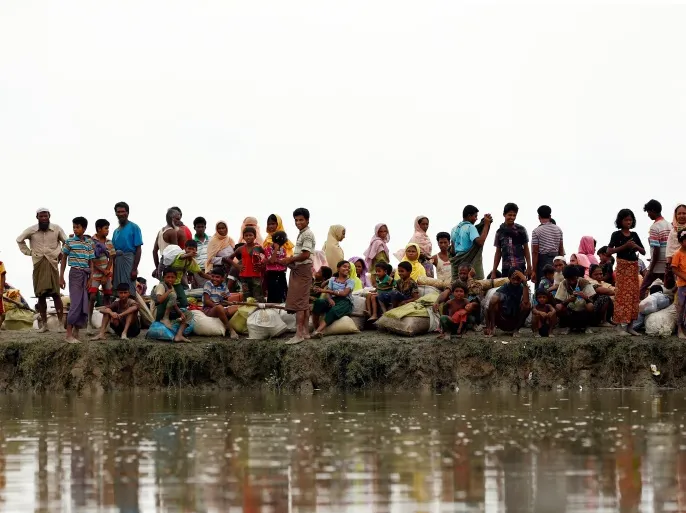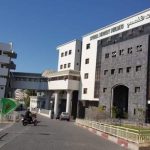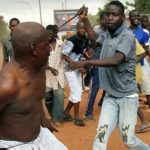The Rohingya crisis dates back to before the establishment of the contemporary state in Burma ( Myanmar ), specifically to the period of British colonialism, which incited Buddhists to kill and torture them, thereby establishing a crisis that has been continuing for decades, and its human, political, and moral costs are still on the rise.
As a result of the incitement carried out by the British occupier against the Rohingya minority, which settled heavily in northern Rakhine ( formerly Arakan ), the Buddhists, after the British provided them with weapons, committed a massacre against Muslims in 1942, killing thousands.
The course of the crisis,
after the departure of British colonialism (in 1948) and the establishment of the state, violations against the Rohingya began to increase, against the backdrop of the colonial legacy, and the military regime’s endeavor to build and establish a new concept of nationalism, during which the scapegoat (the Rohingya) began to appear within the Burmese people as a result of their differences in appearance – due to their darker skin – And a religion different from the rest of the population, which makes them – in the eyes of the military regime – closer to Bangladesh than to Burma.
In anticipation of escalating tensions between the Rohingya and other Burmese ethnic communities, some Rohingya petitioned on behalf of the rest to be included in East Pakistan (now known as Bangladesh) during the 1947 partition.
Tasnima Odin, a writer for the Independent newspaper, said that the historical progression of the current persecution can be traced from 1962, when a military coup seized power, and in order to stabilize its foundations, it began to use religion as evidence of whether a person is an authentic citizen of the state, exploiting Buddhism to justify nationalism.
In 1974, the Rohingya were stripped of their identity, and the state classified them as “foreigners.” This led large numbers of them to flee to neighboring countries to escape the violence that this legislation seemed to justify.
In 1982, the Citizenship Law was enacted not only to exclude the Rohingya from obtaining citizenship, but also to deprive them of the right to live in the country unless they have conclusive evidence showing that their ancestors lived in this country before independence. Despite this, citizenship documents for most communities are impossible to obtain. .
This law resulted in depriving Rohingya Muslims of owning real estate, engaging in trade, and holding jobs in the army and government bodies. They were also deprived of the right to vote in parliamentary elections, establish organizations, and engage in political activities.
Successive governments in Myanmar imposed heavy taxes on Muslims, preventing them from pursuing higher education , in addition to placing restrictions on their movement, travel, and even marriage. Reports also indicated that in 1988, the authorities established “model villages” in northern Arakan so that Buddhist families could be encouraged. To settle in these areas instead of Muslims.
The Rohingya crisis witnessed a major turning point on October 9, 2016, when the government announced the first armed attack in which hundreds participated on border police stations with Bangladesh, using white and home-made weapons, and accused Rohingya organizations that had a historical presence in the 1980s and 1990s of being responsible for it.
On October 11, 2016, four soldiers were killed on the third day of the attacks, coinciding with the launch of a large-scale security campaign by the authorities in northern Rakhine State, and the exodus of tens of thousands towards Bangladesh began, and the campaign continued until February 2017.
On October 17, 2016, Atallah Abu Ammar Janouni appeared, announcing that he was the leader of the Al-Yaqin Movement, which was responsible for those attacks on police stations and the army.
On November 15, 2016, the government said that the death toll on both sides had reached 102 Rohingya, 32 security personnel, and about 234 Rohingya detainees on charges of connection to the events.
In March 2017, news agencies published a document showing the arrest of 423 Rohingya people, including children.
On April 5, 2017, statements and statements by the Al-Yaqin Movement appeared with a new name, “Arakan Rohingya Salvation Army,” denying the armed group’s involvement in killing civilians and denouncing the killing of any civilians anywhere.
On April 24, 2017, a brief statement was issued by the Arakan Rohingya Salvation Army denying official statements published by local news sites about its attempt to plan attacks in June 2017, and accusing the authorities of spreading the news to plan attacks against Rohingya civilians.
On May 30, 2017, a new statement was issued by the “Arakan Rohingya Salvation Army” denying its involvement in any terrorist acts against civilians, and affirming that its goal is to defend the Rohingya and their rights, and that their principle is self-defense and not to plan attacks against civilians, denouncing terrorism against any of them. Followers of religions or nationalities, emphasizing the security and safety of all races and religions.
On August 25, 2017, clashes broke out in Arakan, as a result of which more than thirty people were killed, including members of the security forces.
On August 29, 2017, the number of Rohingya fleeing to Bangladesh reached approximately five thousand people, and the number later rose to 18 thousand on the thirtieth of the same month, according to the International Organization for Migration. Then the number rose one day later to about 27 thousand, while the rest remained Nearly twenty thousand are stranded at the border with Bangladesh, and the bodies of twenty Rohingya who drowned while trying to cross the Naf River were recovered.
With the continued violence in Arakan and the continued flight of the Rohingya, the number of people fleeing to Bangladesh reached about 123,000 on September 5, 2017.
For its part, the World Food Program announced on September 6, 2017 that it was distributing aid to about 146,000 Rohingya in their camps in Bangladesh, and a spokeswoman for the United Nations High Commissioner for Refugees said that 164,000 Rohingya Muslims had arrived in Bangladesh since August 25. August 2017.
On September 9, 2017, the government said that about two thousand homes were burned by Rohingya militants, while local residents’ testimonies stated that it was the government army that burned Muslim villages in Arakan Province.


